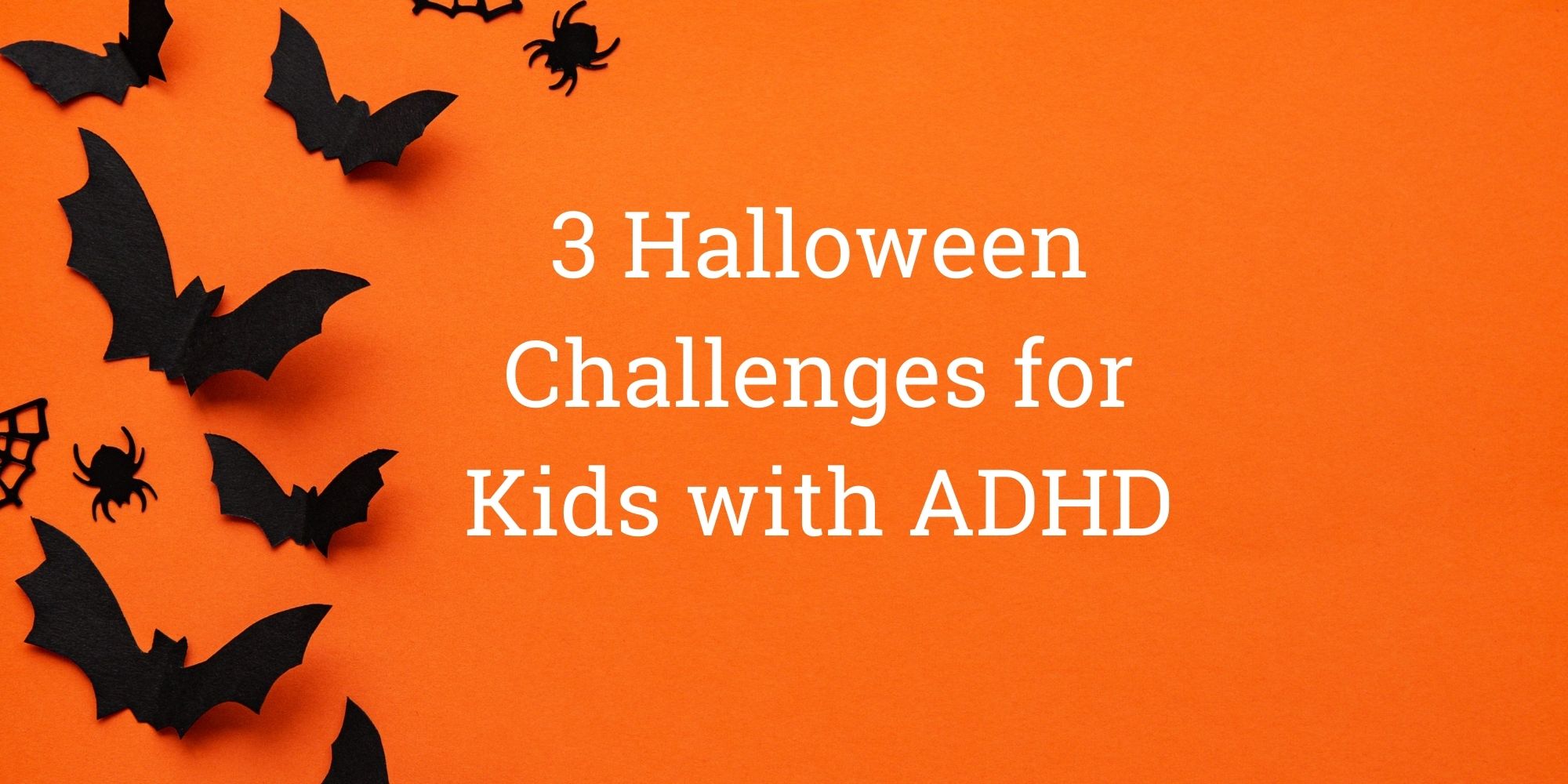
3 Halloween Challenges for Children with ADHD
Halloween is right around the corner, and for many kids, it’s one of the most exciting days of the year. There’s costumes, candy, spooky decorations, Halloween parties, trick-or-treating, and a whole lot of fun. Unfortunately, Halloween presents a few challenges for children with ADHD.
Below, our team of ADHD experts explores these challenges and provide tips for overcoming them so that your child can experience a fun — and safe — Halloween.
1. Adhering to Safety Rules
Halloween, despite all of the fun, is one of the most dangerous days of the year for children. US News reports highlight that the list of dangers including:
- Tripping over ill-fitting costumes
- Visual impairments due to masks or wigs
- Dangers when crossing the street
Children with ADHD may run from house to house and pay little attention to the cars driving in the road. The combination of excitement and inattention can lead to children getting separated from their trick-or-treating group.
What You Can Do
There are many things you can do to help promote safety on Halloween. Here are just a few ideas:
- Discuss all safety rules with your child before even leaving the house (your child may be too excited to fully take in your message if you start this conversation once you’ve started trick-or-treating.)
- Talk about stranger safety.
- Ensure that your child can see through his/her mask and that the costume won’t pose a tripping hazard.
- Review the trick-or-treating map with your child.
- Create a safety plan in the event that your child is separated from you.
- Give your child glow sticks or reflective arm band for increased safety when crossing the streets at night.
- Review proper street crossing rules.
2. Eating Too Much Candy
While candy doesn’t cause ADHD, consuming high levels of sugar (and generally following poor dietary habits) can exacerbate symptoms of ADHD. For children who struggle with impulse control, it can be even harder to resist the temptation of candy.
What You Can Do
Many parents have adopted creative solutions for dealing with all.of.the.candy on Halloween. Here are a few ideas:
- Allow your child to trick-or-treat and enjoy the fun tradition, but when they return home, allow them to trade in their bag of candy for non-candy treats, such as race cars, books, dolls, bouncy balls, or some other goodie they’ve had their eye on. You can then donate the candy.
- Create a candy calendar, marking out how many pieces your child can have each day.
- Limit the number of houses you visit to reduce the amount of candy you bring home.
Regardless of how many pieces of candy your child enjoys, be sure to focus on other healthy foods throughout the rest of the day.
3. Calming Down at Bedtime
Winding down for bedtime after a fun-filled Halloween can be tricky. Because children with ADHD may struggle to regulate their emotions, you may see an uptick in temper tantrums, especially if your child is upset that Halloween is over.
What You Can Do
Thankfully, there are many ways you can make bedtime calmer on Halloween. Here are a few ideas.
- Be sure that you’re implementing good sleep hygiene practices
- Create a special bedtime routine just for Halloween e.g., reading a special Halloween book or wearing themed pajamas
- Allow extra time for your bedtime routine on Halloween
- Let your child know their schedule for the day so they have time to prepare mentally
- Give more frequent reminders when shifting activities
- Follow these tips for making Halloween more ADHD-friendly
Need Help Managing Your Child’s ADHD?
Here at Next Step 4 ADHD, we are a multidisciplinary practice, and our team of experts excels at diagnosing and treating ADHD in children. If your child is struggling with ADHD, we can help. Book your appointment here and get started with your next steps today.
Related Posts
Finding the Right Support: Child Psychiatrist in Louisville, Kentucky
Parenting a child with ADHD can be both rewarding and challenging......
Attention Versus Memory: What’s the Difference?
Are you paying attention? We are leaving in 10 minutes. Why aren't you ready?...


